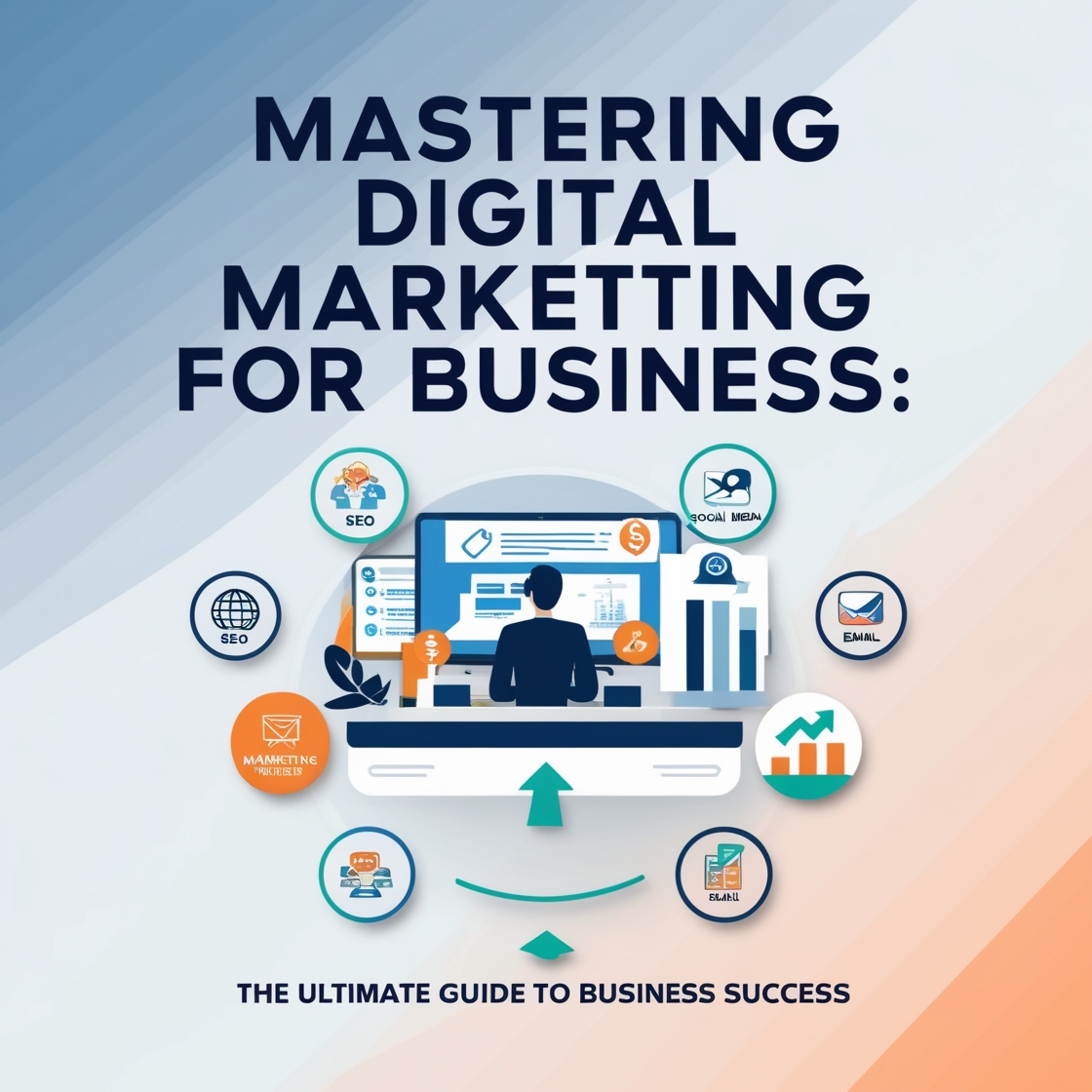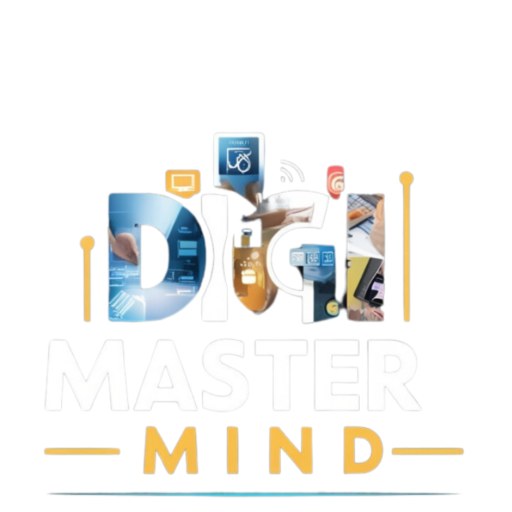In today’s fast-paced digital world, using digital marketing for small business growth in India has become essential for expanding brands and achieving sustained success. For small businesses in India, a country with a rapidly growing digital landscape, leveraging the power of digital marketing can lead to remarkable outcomes. Here’s how small businesses in India can utilize digital marketing to propel their brand growth and achieve lasting success. 1. Understanding the Indian Digital Landscape India’s digital ecosystem is diverse and dynamic. With a growing number of internet users and increasing smartphone penetration, the opportunities for digital marketing are vast. Small businesses should start by understanding their target audience’s online behavior, preferences, and the platforms they use. This knowledge helps in tailoring marketing strategies effectively. 2. Building a Strong Online Presence A robust online presence is crucial for brand visibility. Small businesses should create a professional website that reflects their brand identity. Ensure the website is mobile-friendly, as many Indian consumers access the internet via smartphones. Additionally, optimizing your website for search engines (SEO) will improve its visibility on search engine results pages, driving more organic traffic. 3. Leveraging Social Media Platforms Using digital marketing for small business growth in India starts with establishing a robust online presence, which is crucial for brand visibility. Small businesses should create a professional website that reflects their brand identity. It’s important to ensure the website is mobile-friendly, as many Indian consumers access the internet via smartphones. Additionally, optimizing your website for search engines (SEO) will improve its visibility on search engine results pages, driving more organic traffic. 4. Implementing Local SEO Strategies Local SEO is critical for small businesses looking to attract customers within their geographic area. Optimize your online content with local keywords, claim and optimize your Google My Business listing, and encourage satisfied customers to leave reviews. This approach increases your chances of appearing in local search results and drives traffic from nearby customers. 5. Creating Valuable Content Content marketing is a key component of digital marketing success. Small businesses should prioritize crafting meaningful and pertinent content that resonates with their audience’s needs and interests. This might encompass a range of formats, such as blog articles, infographics, videos, and other engaging media. High-quality content not only boosts your SEO but also establishes your brand as an authority in your industry. 6. Utilizing Email Marketing Email marketing continues to be a highly effective method for building strong customer relationships and boosting sales. Build an email list by offering valuable incentives such as discounts or exclusive content. Craft personalized email campaigns that provide relevant information, promotions, and updates to keep your audience engaged and encourage repeat business. 7. Harnessing the Power of Influencer Marketing Influencer marketing can be exceptionally successful in connecting with specific target audiences. Collaborate with influencers who align with your brand values and have a strong following in your niche. Their endorsement can enhance your brand’s credibility and expand your reach to their audience, driving more traffic and potential customers to your business. 8. Analyzing and Adapting Strategies Digital marketing is not a one-size-fits-all approach. It’s essential to continuously analyze the performance of your marketing campaigns using tools like Google Analytics. Track metrics such as website traffic, conversion rates, and social media engagement to understand what’s working and needs adjustment. Adapt your strategies based on these insights to optimize your marketing efforts. 9. Engaging with Your Community Engage with your audience by participating in online conversations, responding to comments and messages, and supporting local causes. This engagement fosters a sense of loyalty and trust, making customers more likely to choose your brand over competitors. 10. Exploring Paid Advertising Paid advertising can complement your organic efforts and provide an immediate boost to your brand’s visibility. Services such as Google Ads and social media advertising enable precise targeting of demographics and locations. Explore various ad formats and targeting strategies to discover what is most effective for your business. Conclusion Digital marketing offers immense opportunities for small businesses in India to achieve brand growth and success. By building a strong online presence, leveraging social media, implementing local SEO, creating valuable content, and utilizing various digital tools, small businesses can enhance their visibility, engage with their audience, and drive growth. Continuous analysis and adaptation are key to staying competitive in the evolving digital landscape. Embrace these strategies to harness the power of digital marketing and take your business to new heights.
Mastering Digital Marketing for Business: The Ultimate Guide to Business Success
In the fast-paced digital world of today, you have to know how to do digital marketing if you want your business to succeed. Digital marketing tactics can help your business reach new heights, no matter if it’s a new business or an old one. This guide will walk you through the key parts of digital marketing and how to harness its power for your business success. How to Understand Digital Marketing Digital marketing includes all kinds of marketing that use computers, phones, or the internet. Search engines, social media, email, and websites are just some of the digital tools that businesses use to connect with current and potential buyers. Here’s a breakdown of the main components of digital marketing: Search Engine Optimization (SEO): 1. Content marketing: 2. Pay-per-click (PPC) advertising: 4. Affiliate marketing: 5. Email marketing: 6. Online PR: 7. Inbound marketing: 8. SEM (search engine marketing) Crafting a Digital Marketing Strategy In order to be successful at internet marketing, you need a clear plan. To make one, follow these steps: Define Your Goals: What do you want to achieve? Common goals include increasing brand recognition, generating leads, and driving sales. Know Your Target Audience: Know who your perfect customers are. Create buyer profiles to tailor your marketing efforts. Choose Your Channels: Select the digital marketing channels that match with your goals and audience. Develop material: Create valuable, relevant material that attracts and engages your audience. Set a Budget: Allocate resources successfully across your chosen channels. Measure and Analyze: Use analytics tools to track your success and adjust your strategy accordingly. Key Digital Marketing Tactics SEO (Search Engine Optimization) – Optimize your website to rank higher in search engine results. Use relevant keywords, make quality content, and ensure a mobile-friendly site. Content Marketing – Create and distribute valuable content to attract and retain a clearly defined community. Types of material include blogs, videos, infographics, and ebooks. Social Media Marketing – Leverage platforms like Facebook, Instagram, LinkedIn, and Twitter to reach your community. Engage with followers, share material, and run targeted ads. PPC Advertising – Pay for ads to show at the top of search engine results or on social media platforms. Use platforms like Google Ads and Facebook Ads for targeted marketing. Email Marketing Build an email list and send newsletters, promotional deals, and updates. Personalize emails to boost engagement and conversion rates. Measuring Success To ensure your digital marketing efforts are good, you need to measure their effectiveness. Key performance indicators (KPIs) include: Website Traffic: Monitor the number of visits to your site. Conversion Rates: Track the percentage of visitors who finish a desired action (e.g., making a purchase). Engagement: Measure likes, shares, comments, and other activities on social media. ROI (Return on Investment): Calculate the revenue generated from your digital marketing efforts compared to the cost. Staying Updated Digital marketing is constantly evolving, with new trends and technologies appearing regularly. Stay tuned by: Following Industry Blogs: Read blogs from industry stars like Moz, HubSpot, and Neil Patel. Attending Webinars and Conferences: Participate in events to learn from experts and network with peers. Taking Online classes: Enroll in classes to deepen your knowledge and skills. Conclusion Mastering digital marketing is important for business success in today’s digital age. By understanding the key components, crafting a solid plan, and continuously measuring and adjusting your efforts, you can harness the power of digital marketing to achieve your business goals. Stay aware and adaptable, and you’ll be well on your way to digital marketing success.



